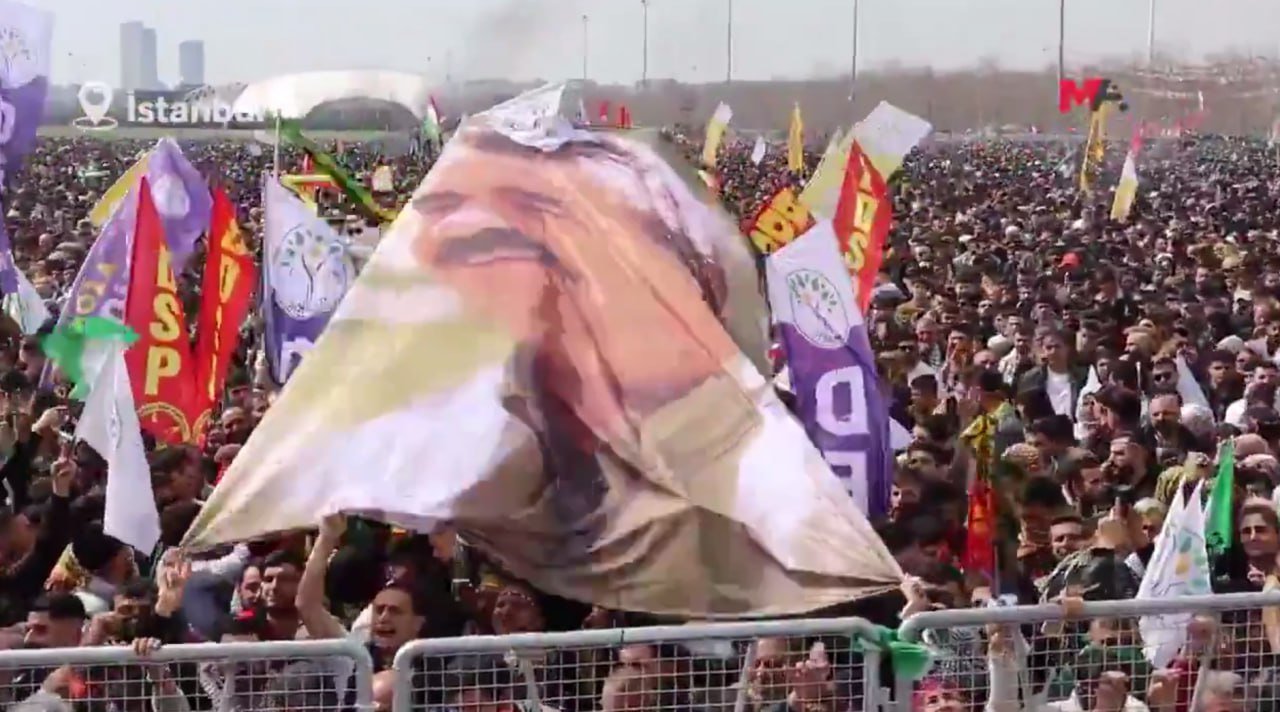The Fragile Peace Orchestrated by a Dictator and a Prisoner: PKK Disbands After 40 Years of Conflict
Executive Summary
The Kurdistan Workers’ Party (PKK), a militant Kurdish group locked in a bloody insurgency with Turkey for over four decades, formally announced its dissolution following a congress held in early May 2025. The move came in response to a peace appeal by imprisoned PKK leader Abdullah Öcalan, and marks the end of an armed struggle that claimed more than 40,000 lives. While Turkish President Recep Tayyip Erdoğan welcomed the disbandment as a pivotal step toward national stability, the process remains fragile, contingent on Turkey’s political will and Öcalan’s contested leadership of the transition. Both domestic and regional dynamics—involving Syria, Iraq, and Kurdish diaspora communities—will determine whether this symbolic end yields substantive peace.
Analysis
The PKK’s 12th Extraordinary Congress, held in secrecy across two locations in the Medya Defense Areas of northern Iraq, culminated in a unanimous decision to dissolve the party’s organizational structure and end its armed struggle. Delegates, including top military and political leaders, described the move not as a surrender, but as a historical pivot—shifting from military resistance to democratic advocacy for Kurdish rights.
Duran Kalkan, a senior figure in the PKK, declared the dissolution a “new beginning,” while political reports emphasized the group’s role in reviving a Kurdish identity once on the verge of extinction. The congress stated that the armed struggle had fulfilled its historical mission, disrupting policies of assimilation and annihilation, and reframing the Kurdish question within the realm of democratic politics.
The disbandment was triggered by a call from Öcalan, who remains imprisoned on İmralı Island since 1999. In his February declaration, he argued that the time had come for the PKK to end armed resistance and pursue peace through political engagement. The congress’s resolutions were clear: Öcalan is to oversee the transition, and the PKK’s military activities have ceased. Whether Turkey permits Öcalan to assume such a role remains one of the central uncertainties of the unfolding process.
President Erdoğan seized the moment to project political maturity, framing the PKK’s disbandment as a “threshold” toward a terror-free Turkey. He credited Turkish intelligence and security services for managing the peace effort and vowed to monitor the process closely. While the Turkish lira remained stable and the stock market saw a minor boost, analysts warn that symbolic gestures may not translate into sustainable peace unless Ankara establishes a clear legal framework for the disarmament, reintegration, and political inclusion of PKK members.
The Turkish government is reportedly considering multiple models for overseeing the disarmament, including collaboration with the Kurdistan Regional Government in Iraq or the formation of an international commission involving the U.S. and EU. There is also talk of relocating high-ranking PKK leaders to third countries and reintegrating rank-and-file members without outstanding charges into Turkish society.
Still, the peace effort is fraught with geopolitical risk. Kurdish groups in Syria, such as the YPG—long viewed by Ankara as PKK affiliates—have distanced themselves from Öcalan’s call, complicating Turkey’s ambitions for regional containment. In Syria, Kurdish forces remain entrenched in opposition to both Turkish-backed rebels and the central Assad government. The Syrian Democratic Forces (SDF), allied with the U.S. in the fight against ISIS, are unlikely to surrender autonomy without assurances.
At home, Erdoğan’s critics see the timing of the peace initiative as politically opportunistic. The disbandment comes amid domestic unrest, following the jailing of Istanbul’s mayor and leading opposition figure Ekrem İmamoğlu. Some speculate Erdoğan is seeking Kurdish support for a proposed constitutional reform that would allow him to remain in power beyond 2028.
Symbolically, the PKK’s closure marks the end of an era. Formed in 1978 and born from Marxist roots, the group evolved into the foremost vehicle of Kurdish resistance, channeling the grievances of a marginalized population into one of the most enduring insurgencies in the Middle East. Its decades of guerrilla warfare—spanning rural mountains and urban streets—have left indelible scars on Turkey’s political and social fabric.
Despite the ceasefire, key concerns remain unresolved: Will Turkey recognize Kurdish cultural and political rights? Can PKK-affiliated structures safely transition into legal civil organizations? Will the government truly allow Öcalan a leadership role, or exploit his symbolic presence while sidelining meaningful reforms?
In Diyarbakır and elsewhere in the southeast, the mood is one of cautious optimism. Many Kurds view the disbandment as a necessary but incomplete step. As Hasan Huseyin Ceylan, a local resident, put it: “It is really important that people do not die anymore. But democracy must follow.”
Whether the fragile peace can hold will depend not only on military de-escalation but on political courage from both the Turkish state and the remnants of a movement that once fought from the shadows.


